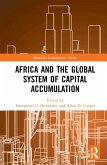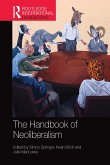This book collects and integrates Abbott and Snidal's influential scholarship on indirect global governance, with a new analytical introduction that probes the role of indirect governance techniques in the universe of global governance arrangements.
The volume presents the Governance Triangle, a now widely-used figure that demonstrates and helps to assess the proliferation of private and public-private standard-setting organizations, along with new forms of intergovernmental institutions, over recent decades. It then analyzes how intergovernmental organizations, regulatory bodies, and other "global governors" enlist and work through those organizations as intermediaries, so as to govern more effectively and gain knowledge, influence and legitimacy. It demonstrates Abbott's and Snidal's groundbreaking concept of orchestration, a mode of indirect governance in which influential governors catalyze, support, and steer intermediary organizations through wholly voluntary relationships. It also considers their more recent innovations in the theory of indirect governance. These include additional modes of governance, such as co-optation, delegation and trusteeship, as well as the pervasive "Governor's Dilemma" trade-off between a governor's control of its intermediaries and the intermediaries' competence.
This book will appeal to scholars and students in multiple disciplines, including international relations, global governance, law, and regulatory studies.
The volume presents the Governance Triangle, a now widely-used figure that demonstrates and helps to assess the proliferation of private and public-private standard-setting organizations, along with new forms of intergovernmental institutions, over recent decades. It then analyzes how intergovernmental organizations, regulatory bodies, and other "global governors" enlist and work through those organizations as intermediaries, so as to govern more effectively and gain knowledge, influence and legitimacy. It demonstrates Abbott's and Snidal's groundbreaking concept of orchestration, a mode of indirect governance in which influential governors catalyze, support, and steer intermediary organizations through wholly voluntary relationships. It also considers their more recent innovations in the theory of indirect governance. These include additional modes of governance, such as co-optation, delegation and trusteeship, as well as the pervasive "Governor's Dilemma" trade-off between a governor's control of its intermediaries and the intermediaries' competence.
This book will appeal to scholars and students in multiple disciplines, including international relations, global governance, law, and regulatory studies.
"Kenneth Abbott and Duncan Snidal are masters at showing the variety of institutional forms in the contemporary world: from formal to informal governance, hard to soft law, international to transnational organizations. They are attuned to agency and how it varies, depending on agents' positions relative to one another, and they have coined key phrases, including the "governance triangle" and "orchestration." For a sophisticated understanding of contemporary global governance, The Spectrum of International Institutions is essential reading." - Robert O. Keohane, Professor of International Affairs Emeritus, Princeton University, USA.
"Abbott and Snidal are arguably the two most influential thinkers about institutional design in world politics. This volume brings together an authoritative "Best of" collection of their recent works. Moreover, it links the pieces together into a whole that is more than the sum of its parts, and in doing so shows how magisterial this work is." - Michael Zürn, Director of the Global Governance research unit at the WZB Berlin Social Science Center; Professor of International Relations, Free University Berlin.
"For three decades, Kenneth Abbott and Duncan Snidal have been both the leading team of interdisciplinary international-law-and-international-relations scholars, and the most astute students of the ever-growing complexity of global governance. This volume brings together their most important and insightful recent scholarship, illuminating the rise of private transnational governance, the proliferation of "soft-law" and informal regimes, and efforts to "orchestrate" governance. Essential reading for anyone who wants to understand global governance in the 21st century." - Mark Pollack, Professor of Political Science and Jean Monnet Chair, Temple University.
"Abbott and Snidal are arguably the two most influential thinkers about institutional design in world politics. This volume brings together an authoritative "Best of" collection of their recent works. Moreover, it links the pieces together into a whole that is more than the sum of its parts, and in doing so shows how magisterial this work is." - Michael Zürn, Director of the Global Governance research unit at the WZB Berlin Social Science Center; Professor of International Relations, Free University Berlin.
"For three decades, Kenneth Abbott and Duncan Snidal have been both the leading team of interdisciplinary international-law-and-international-relations scholars, and the most astute students of the ever-growing complexity of global governance. This volume brings together their most important and insightful recent scholarship, illuminating the rise of private transnational governance, the proliferation of "soft-law" and informal regimes, and efforts to "orchestrate" governance. Essential reading for anyone who wants to understand global governance in the 21st century." - Mark Pollack, Professor of Political Science and Jean Monnet Chair, Temple University.








